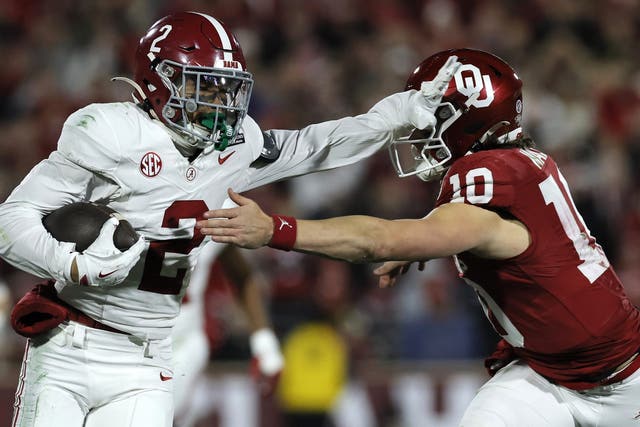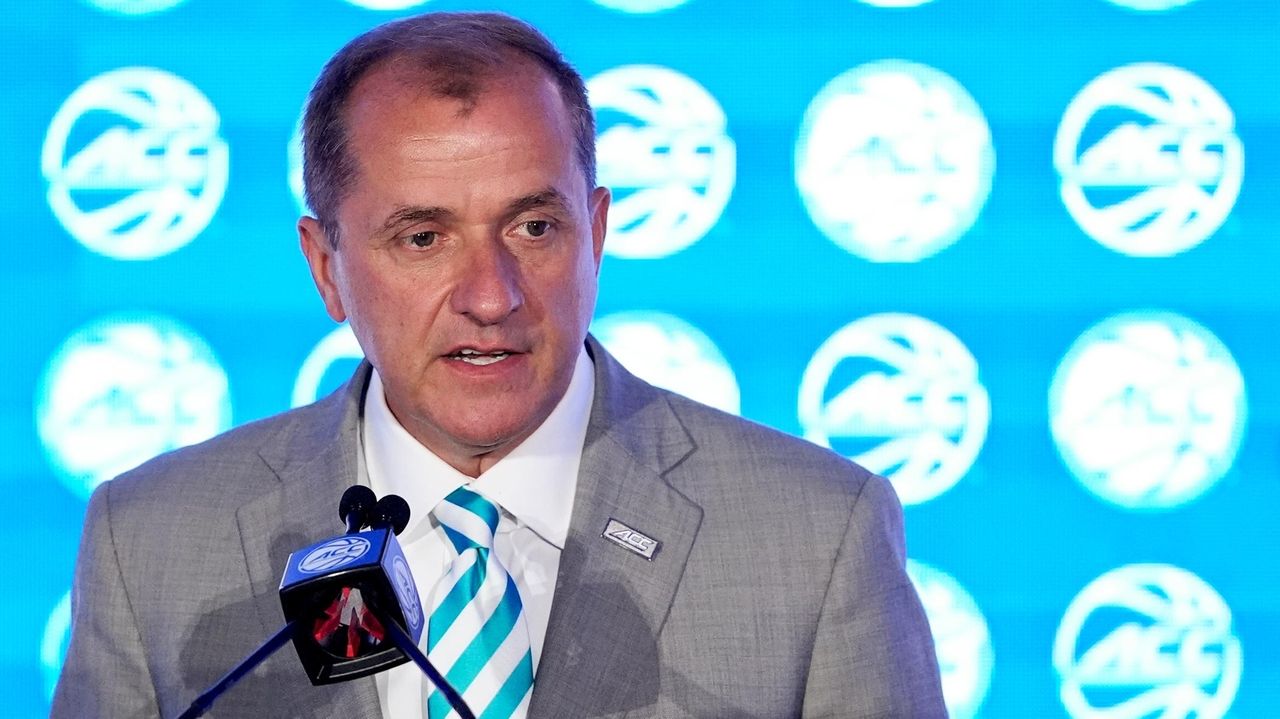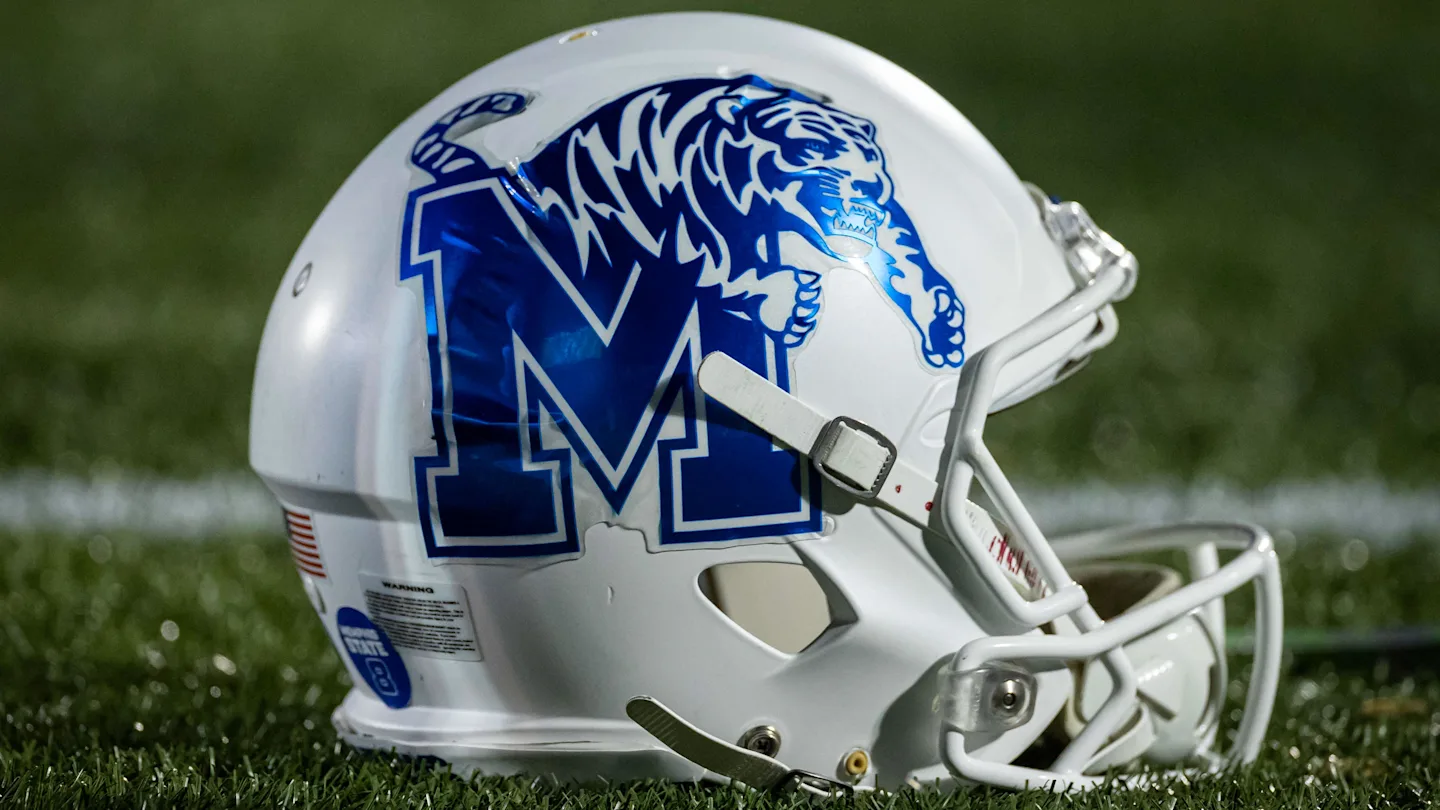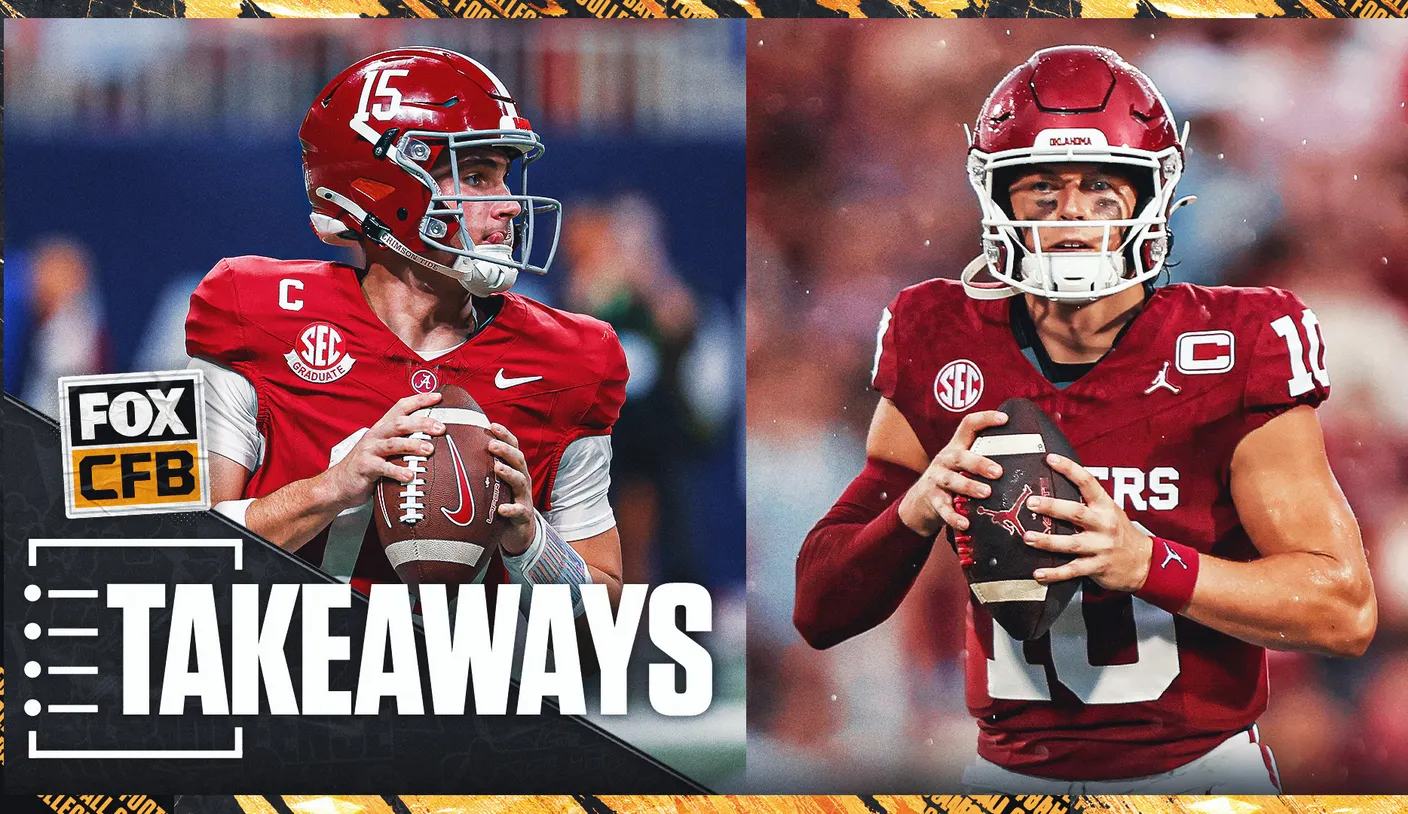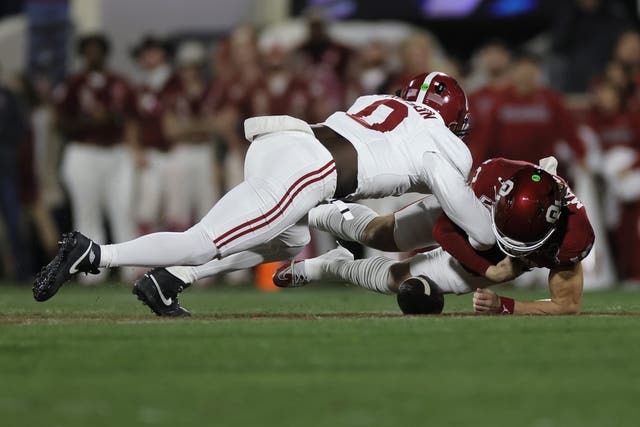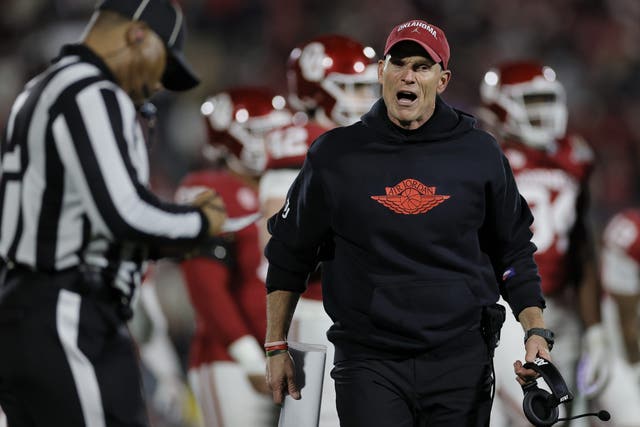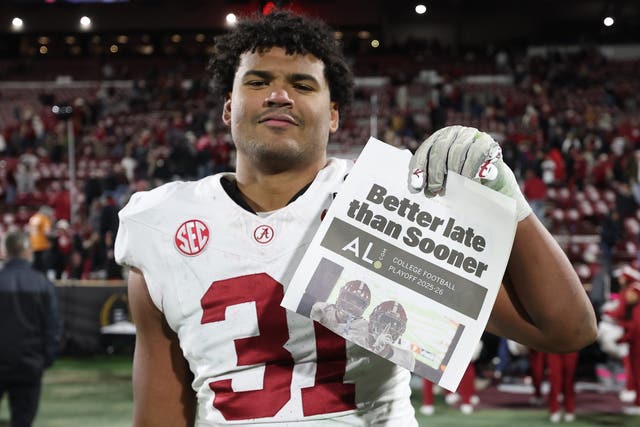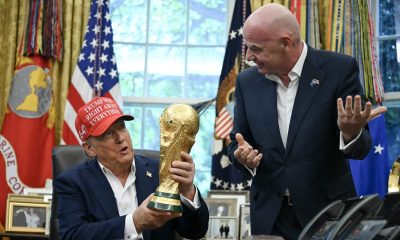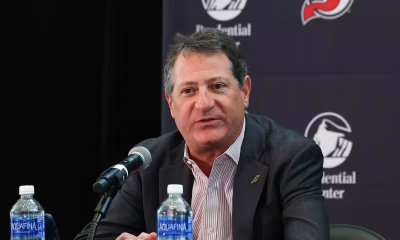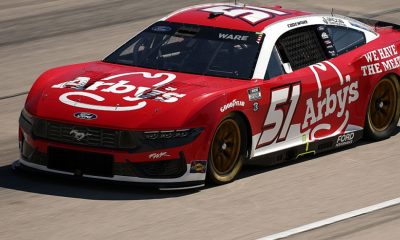OXFORD, Miss. – About an hour before kickoff, athletic director Keith Carter stood on the sideline, just a few yards from Ole Miss legend Eli Manning, and did his best to describe what the last month had been like for the Rebels’ football program.
Chaotic would be a good place to start. Contentious would be fitting and even maddening at times.
Good luck, though, in finding a more dysfunctional build-up to a game earmarked as the most important in school history, certainly in the modern era.
“Somebody told me that I ought to write a book about it,” Carter said with an easy smile. “I said, ‘No, I’ve tried to block it all out.’”
Not the season, and certainly not Saturday, a landmark moment in the annals of Ole Miss football. The Rebels, in their first-ever College Football Playoff game, pounced on Tulane from the outset and pounded the Green Wave in a convincing 41-10 victory before a record crowd of 68,251 at Vaught-Hemingway Stadium.
It was win No. 1 for newly promoted Pete Golding as Ole Miss’ head coach and one the Hotty Toddy Nation was thirsting for ever since Lane Kiffin’s messy exit last month when he bolted for LSU.
“I’ve felt a different vibe, I really have, the way everyone has connected with Pete,” said Carter, referencing a vibe that included Archie Manning coming back to speak to the team this week for the first time since early in Kiffin’s tenure.
At a place known for throwing festive parties, hence the long-standing boast by Ole Miss fans that they’ve “never lost a party,” this was one giant football party. And make no mistake. Ole Miss fans, players and coaches (even the ones on loan from LSU) rejoiced in every minute of it.
While Kiffin might have tweeted during the game — a statistic showcasing his impressive offensive numbers since the advent of coach-to-player communication — he wasn’t around to see the Rebels make history.
“We were ready, just blocking out all extra noise,” Ole Miss receiver Deuce Alexander said. “People were saying we weren’t going to be the same team without coach (Kiffin). He’s a great coach and all, but at the end of the day, the players play the game. So we were just prepared for the moment, just ready to go out there and prove everybody wrong.”
Ready, the Rebels (12-1) were. They ran seven offensive plays on their first two possessions and led 14-0 before anybody could blink. The Green Wave never got closer than 11 points the rest of the way.
It was Golding’s first game as Ole Miss’ coach and the Rebels’ first game without Kiffin, who accepted the LSU head job two days after the Egg Bowl win over Mississippi State. He pushed to continue coaching the Rebels throughout the playoff. As the ordeal dragged on, some players became increasingly frustrated and expressed their displeasure on social media. Carter and the Ole Miss administration made it clear they were moving on without Kiffin.
He took most of his offensive staff with him to LSU, and according to sources, told the coaches they had better be on the plane with him to LSU when he departed on Nov. 30 if they wanted a job. In the end, Kiffin agreed to let offensive coordinator Charlie Weis Jr. and others come back and coach Ole Miss’ team in the playoff, but they’re all headed back to LSU after Ole Miss’ playoff run is over.
Meanwhile, LSU’s interim head coach and one of the Tigers’ best recruiters, Frank Wilson, was recently hired to join Ole Miss’ staff after LSU’s bowl game. Sources told On3 that Kiffin wasn’t planning to keep Wilson along with general manager Austin Thomas, who has returned to Ole Miss in that same role.
“You couldn’t make this stuff up if you wanted to, the wildest shit you could imagine, how all this went down,” one Ole Miss staff member told On3. “I give these kids credit. They had a lot of questions. There was a lot of anger. Think about it. This is the greatest season in Ole Miss history, and you’re playing without your head coach, who left a playoff team for another job, and you’re being coached by other coaches who are going to one of your biggest rivals when the playoff is over and basically working for two schools at the same time.
“I don’t care what happens the rest of the way. These players are champions.”
Kiffin told On3 earlier in the week that he had “moved on” and didn’t feel like it was appropriate to make any comments heading into the game. But afterward, he congratulated the Ole Miss coaches and players on his X account and singled out Golding and seeing his two boys on the sideline.
For Golding, as has been the case since he was promoted, his focus remained squarely on the players. Over and over again, Saturday in a packed interview room, he lauded the players.
But he also threw a little shade in Kiffin’s direction when asked about some of the specific changes he made in taking over the program. He immediately pointed to his right from the podium and asked what used to be sitting down front in the team meeting room.
“We got rid of the basketball goal first,” quipped Golding, referencing a portable basketball goal Ole Miss players and staff would dunk on and play games on during meetings when Kiffin was the coach.
Golding explained that as a player he didn’t like the “forced fun aspect” of bringing teams together. What he did do after being named coach was have players make a list of things that they would want and called every player in to meet with him.
“It was like, ‘Hey give me one thing that you love the most about Ole Miss and give me the one thing that you would change first in this program if you were the head coach,’” Golding recounted.
The most important part was keeping the routine the same, no matter all the staff swapping and keeping everything being said on the outside — on the outside.
Chants of “Pete! Pete!” rang out as Golding left the field, and he joked that he’s also been on the flip side when his teams or defenses haven’t played as well. He also downplayed any difficulty of working through the chaos with the players and having them focused.
“I mean it would be one thing, no disrespect, if this was the Pop-Tarts Bowl or something like that,” Golding said. “It would have been really hard, but this is the playoffs. When people start talking about, ‘Are they going to play or not going to play?’ What are we talking about? I mean, these kids have gone 11-1 up to this point and have a home playoff game for the first time in the history of the program. … They don’t really care who runs them through the tunnel. That’s the truth. They care about their preparation. They care about the plan, are they getting developed?”
Golding held down the curse words, only a couple of “shits,” and joked that he was working on his cursing. He also wasn’t buying any conspiracy theories about the coaches on loan from LSU, including Weis, somehow not being fully invested.
Ole Miss finished with 497 yards – 346 passing and 151 rushing – and racked up 29 first downs. The Rebels were 5-of-7 in the red zone, and the only penalty came on fourth down when they took a delay and punted.
“I had zero concern with Charlie Weis calling this game for this one reason: Charlie Weis cannot afford not to call a hell of a game,” Golding said. “All he’s heard his whole life is that this is Lane Kiffin’s offense, it’s Lane Kiffin’s offense, it’s Lane Kiffin’s offense. Charlie Weis calls the offense just like he’s done all year. He did a great job tonight. So I had no concern because the last thing Charlie wanted to do was come out here and lay an egg, right? Then it’s ‘Who’s offense is it?’ and you (the media) would write about it.”
The only real downer for Ole Miss on Saturday was running back Kewan Lacy leaving the game with a bruised shoulder. He went back into the game after initially injuring it, but later left the sideline for the locker room. Golding said Lacy, the Rebels’ leading rusher, would be further evaluated.
Ole Miss now gets another shot at Georgia in the Sugar Bowl on New Year’s Day. The Bulldogs handed the Rebels their only loss this season.
As historic as Saturday’s win was, there won’t be much celebrating for the Rebels.
“The expectation is to make the playoff every year,” Golding said. “That’s why Keith Carter invests the way he does and runs the program the way he does. That’s the expectation and that’s what was unique about this group. We felt like last year we screwed that up. We had a talented enough team to be able to make the playoff and we didn’t. So all these guys that came into this team this year, their expectation was to make the playoff, and that came true for them. I think that’s going to be for every class going forward. That’s the expectation of where this program is.
“It’s a top-5 program in the country, and that’s your expectation every year.”
